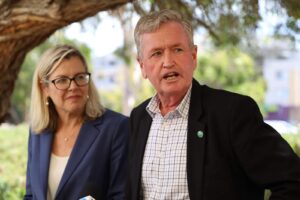The recent voluntary administration of REX Airlines should have come as no surprise, especially
to those tasked with regulating the State’s aviation industry. Anyone with even a passing
knowledge of the industry had been speculating for months on how long the airline could ‘losslead’ their 737 intercity jet services before it would all end in tears.
Any airline wishing to enter the highly competitive market between Australia’s capital cities
ordinarily requires very deep pockets, given the way in which the existing players in the market
have responded to new competition in the past. At REX’s first creditors meeting, the
administrators revealed that REX’s debts totalled $500 million, owed to 4,800 creditors, a deep
hole indeed.
The one saving grace is that the administrators have acted quickly in quarantining REX’s regional
turboprop services, which has allowed the continued operation of these vital services
throughout our remote regional areas. As has been widely reported, it is expected that these
services will be put up for sale as a going concern in the not too distant future.
What has been lost in all of this is that the Cook Labor Government awarded the monopoly
rights for REX Airlines on regulated routes in Western Australia when all of this was playing out.
Under Western Australia’s current aviation regulatory policy, the air services between Perth and
Albany, Esperance and Carnarvon/Monkey Mia are managed by the State Government, with
exclusive operating rights determined by a tender process. The most recent tender was awarded
in October 2023. This was despite concerns about the performance of REX being raised by the
State Opposition, key regional stakeholders and local communities and shire councils, leading
into the tender process.
This calls into question the level of financial due diligence undertaken by the Cook Labor
Government as part of that process, and the very obvious lack of insight into the impact the jet
services were having on the viability of the REX Group as a whole. Even more concerning is the
ambivalence shown by the Minister for Transport, Rita Saffioti, on the awkward situation that
local shires, as airport owners, now face as being unsecured creditors owed many hundreds of
thousands of dollars by REX.
To put it bluntly, the poor shires are the innocent bystanders in all of this, given that they played
no role in the selection of REX as the sole operator into their towns. They are more or less
caught between a rock and a hard place, insofar as having no choice but to support the airline
that the State Government had selected, in order to ensure continued access to these vital
services for their respective communities. When questioned in Parliament, the Minister refused
to provide any assurance that the affected shires will receive any State Government support,
even though they are in this predicament as a consequence of her decision as Minister.
In the current cost of living crisis, the pressure on Local Governments to keep rate increases as
low as possible is immense. They can ill afford to carry losses of the magnitude involved with
the REX situation.


